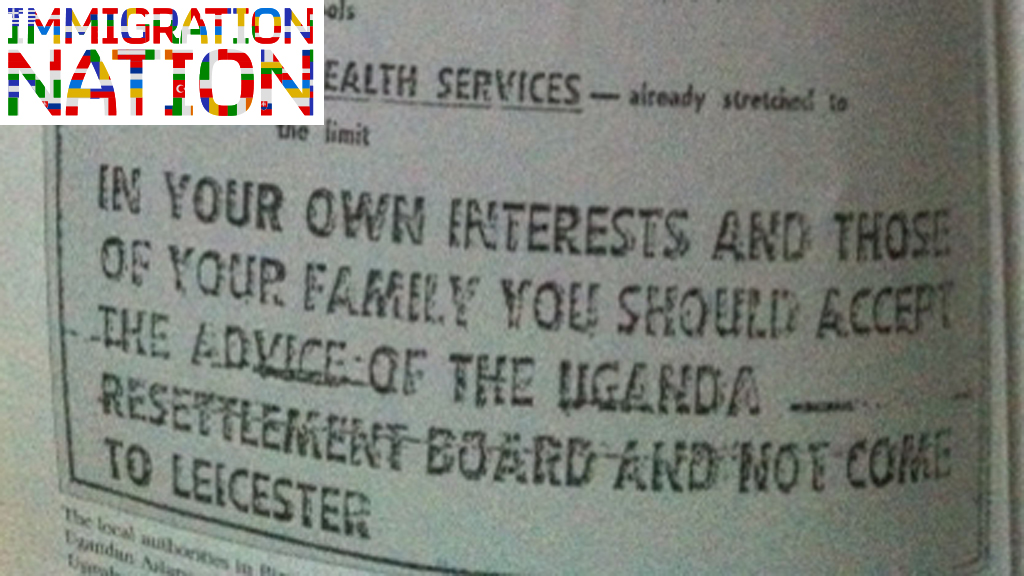Ad that started Leicester’s multicultural evolution
 Darshna Soni
Communities Editor
Darshna Soni
Communities Editor
The warnings over immigration shares many of the themes previously aired in the 1970s. Channel 4 News’s Darshna Soni describes one city’s experience of a previous wave of immigrants.

Taking a stroll along Leicester’s Belgrave Road, it is hard to imagine that Ugandan Asians were once warned that they were not welcome in the city.
The area is dominated by Asian businesses and is known as the “Golden Mile”. You can buy anything from incense and idols, to glittering gold in lavish designs and the latest swanky saris.
Yet in 1972, when Idi Amin told 60,000 Asians they had just 90 days to pack their bags and leave, Leicester city council took out an advertisement telling them not to come to the city. Headlined “An important announcement,” it read, “In your own interests and those of your family you should… not come to Leicester.”
The ad, of course, backfired spectacularly. My parents were among thousands who read the ad and were curious to find out why the council would go to such trouble as to take out an ad in the Ugandan papers – and so they decided to come to Leicester to find out. Today, the city has the highest proportion of Asians in the whole country and it is predicted that white residents will soon be a minority.
Biggest assets
The city council has since admitted the ads were a mistake and Leicester describes its diverse communities as its biggest assets. The city is often held up as an example of multicultural success, as Britain’s most ethnically harmonious city.
The ads are a fascinating slice of social history. But if you read them carefully, many of their themes can be found in today’s immigration debates.
They warn of pressures on social housing, education and healthcare – themes that some have been accused of exploiting as Britain prepares to lift working restrictions for Bulgarians and Romanians next year. Earlier this year, the coalition government was accused of planning a similar advertising campaign.